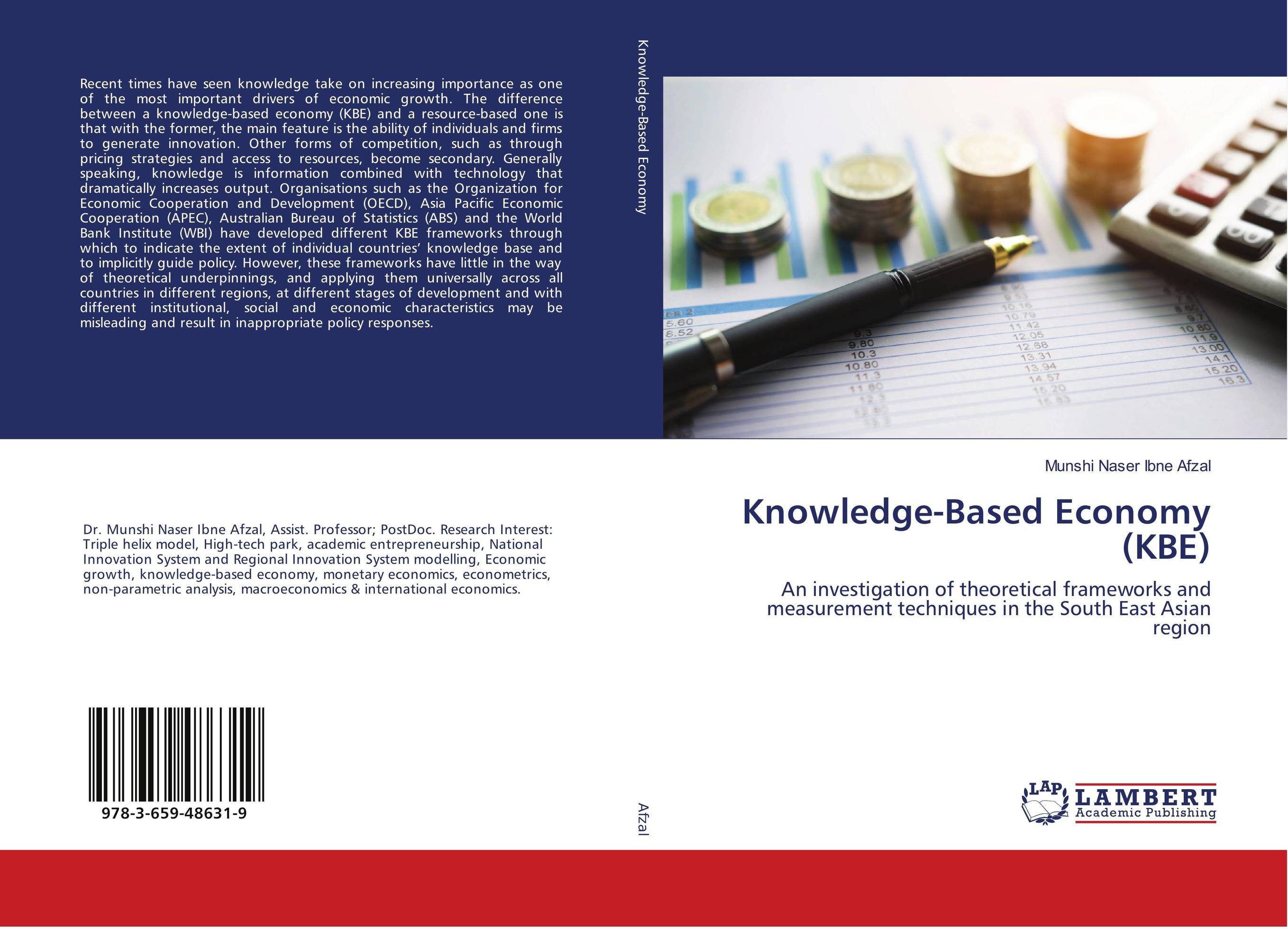| Поиск по каталогу |
|
(строгое соответствие)
|
- Профессиональная
- Научно-популярная
- Художественная
- Публицистика
- Детская
- Искусство
- Хобби, семья, дом
- Спорт
- Путеводители
- Блокноты, тетради, открытки
Knowledge-Based Economy (KBE). An investigation of theoretical frameworks and measurement techniques in the South East Asian region

В наличии
| Местонахождение: Алматы | Состояние экземпляра: новый |

Бумажная
версия
версия
Автор: Munshi Naser Ibne Afzal
ISBN: 9783659486319
Год издания: 2018
Формат книги: 60×90/16 (145×215 мм)
Количество страниц: 160
Издательство: LAP LAMBERT Academic Publishing
Цена: 42249 тг
Положить в корзину
| Способы доставки в город Алматы * комплектация (срок до отгрузки) не более 2 рабочих дней |
| Самовывоз из города Алматы (пункты самовывоза партнёра CDEK) |
| Курьерская доставка CDEK из города Москва |
| Доставка Почтой России из города Москва |
Аннотация: Recent times have seen knowledge take on increasing importance as one of the most important drivers of economic growth. The difference between a knowledge-based economy (KBE) and a resource-based one is that with the former, the main feature is the ability of individuals and firms to generate innovation. Other forms of competition, such as through pricing strategies and access to resources, become secondary. Generally speaking, knowledge is information combined with technology that dramatically increases output. Organisations such as the Organization for Economic Cooperation and Development (OECD), Asia Pacific Economic Cooperation (APEC), Australian Bureau of Statistics (ABS) and the World Bank Institute (WBI) have developed different KBE frameworks through which to indicate the extent of individual countries’ knowledge base and to implicitly guide policy. However, these frameworks have little in the way of theoretical underpinnings, and applying them universally across all countries in different regions, at different stages of development and with different institutional, social and economic characteristics may be misleading and result in inappropriate policy responses.
Ключевые слова: knowledge-based economy, Finance, society, World, People, change, investment, insurance



